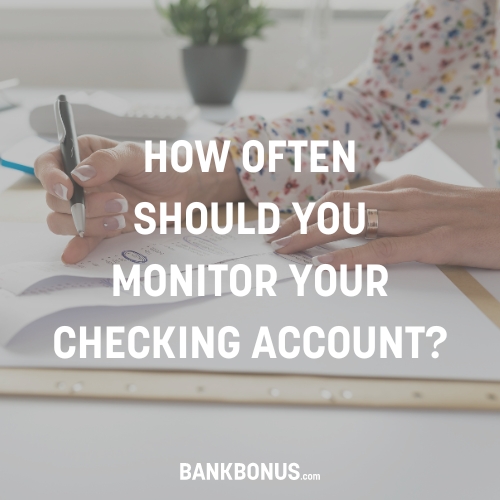No one likes to think of bank failures, but with the most recent Silicon Valley failure, it’s something on everyone’s mind.
If you have money at an FDIC-insured bank, you’re likely insured up to $250,000, but what if you have deposits in excess of $250k? It’s important to know what would happen to your money in the case of a bank failure.
In this post, we’ll show you how to insure excess deposits so you can feel confident that your money is safe.
Insuring Excess Deposits
Most US banks are members of the Federal Deposit Insurance Corporation, which insures depositors’ funds if a bank fails. But, there’s one problem.
The FDIC insures deposit accounts up to $250,000 per person, so you risk the money not being insured if you have excess bank deposits. This means in the event of a bank failure, you could lose money.
Still, there are ways to insure excess deposits at the same bank and for the same person, such as having a personal and business account ownership category. However, your money could be at risk if you only have one deposit category and have more than $250,000 deposited.
The Federal Deposit Insurance Corporation (FDIC)
The FDIC insures traditional bank products, such as checking and savings accounts. They also insure certificate of deposit accounts, money market deposit accounts, and other bank products, such as cashier’s checks.
The FDIC doesn’t insure any type of investment product, even if offered by the bank. They only insured deposit accounts.
Familiarize Yourself With FDIC Limits
The largest thing you should know about an FDIC-insured bank is the FDIC limits. If you exceed them, you risk losing money if the bank fails.
Currently, the FDIC limits are $250,000 per depositor, but this means per category. So if you can spread your money across different categories or split the funds between you and your spouse, you could get around the $250,000 limit.
Failure of an FDIC Bank
FDIC insurance is your sole protection from bank failure. In the event of bank failures, like any other business, you normally lose your funds.
However, the FDIC insures each depositor up to $250,000. In addition, if the bank fails, the FDIC will reimburse each depositor the amount they had deposited, up to $250,000.
You’re taking a gamble without this insurance, but fortunately, most banks are FDIC members.
7 Ways to Insure Deposits Over $250,000
If you’re doing things right and have more than $250,000 to deposit, what should you do to get around the FDIC insurance coverage limits?
Here are eight ways to insure excess deposits:
1. Open Multiple FDIC-Insured Accounts
The easiest way to insure excess deposits is to have multiple FDIC-insured accounts. The simplest way to achieve this is to spread your money across different banks. If you’ve reached the maximum of $250,000 at one FDIC-insured bank, open accounts at other FDIC-insured banks.
2. Depositors Insurance Funds (DIF)
The Depositors Insurance Fund is another insurance fund that protects deposit accounts. It’s a private insurance coverage offered by around 70 banks, all based in Massachusetts.
The good news is that anyone can use the banks that offer DIF, even if they don’t live in Massachusetts, as long as they accept out-of-state deposits. DIF is only available at FDIC-insured banks, but it is in addition to the FDIC coverage.
3. Join a Credit Union
Another tactic is to join a credit union rather than only depositing funds in a bank. Credit unions, like banks, have an insurance fund, but your FDIC limits aren’t affected when you deposit funds at a credit union.
The National Credit Union Administration (NCUA)
The FDIC equivalent at credit unions is run by the National Credit Union Administration, and the insurance is called the National Credit Union Share Insurance Fund. Like FDIC insurance, depositors are insured up to $250,000 per credit union.
4. Bank Networks
You can become a part of many bank networks and have your larger deposits split into smaller deposits at various banks to have insurance coverage.
CDARS Network
For example, CDARS is a network of banks with CDs. Depositors invest in the CDs after signing a CDARS placement agreement. CDARS takes the money you invest and divides it among its network banks. All this means is your money is split up in various banks’ CDs to help you have FDIC protection.
The downside is you must leave the funds for the duration of the CD, or you will pay an early withdrawal penalty.
IntraFi Network
The IntraFi Network is another network of banks with deposit accounts. When you deposit a large amount of money, they split the deposits between network banks, so your money remains insured.
You get a ‘main account’ to handle your finances, but you can track all other accounts’ status too.
5. MaxSafe Accounts
MaxSafe accounts are offered by Wintrust Bank and offer FDIC insurance as high as $3.75 million. MaxSafe is a lot like CDARS, except it spreads your money across money market accounts instead of CDs.
6. Varying Ownership Categories
If you read the fine print on how FDIC-insured banks work, it’s per depositor and category. That’s the catch.
For example, if you have a business and personal account at the same bank, each account would be insured up to $250,000 because they are in different categories. But there are many other categories too.
Joint Ownership
The easiest category to get away with excess bank deposits is joint ownership. When you own an account with someone else, you automatically get $500,000 FDIC insurance coverage because there are two depositors.
If you have money in an account you own and more in a joint account, you’ll have more than $250,000 in FDIC coverage.
Other categories include:
- Retirement accounts such as IRAs
- Trusts
- Corporations
- Government accounts
7. Brokerage Accounts
You might not think of brokerage accounts as banks, but many brokerages offer cash management accounts in addition to your investment account that helps you have excessive deposits.
Cash Management Accounts
A cash management account is like a checking account. You can write checks from it and use the money to pay bills or however you want. The nice thing about cash management accounts is the broker may sweep the funds across several FDIC-insured banks if your deposits exceed the $250,000 threshold.
Best Accounts for Excess Deposits
If you have more than $250,000, here are the best accounts that you can use to insure excess deposits.
Certificates of Deposit
CDs offer higher interest rates than savings accounts, helping your money grow faster. You don’t have to worry about excess deposits if you spread your funds across several CDs at different banks.
- Capital One: Capital One offers various CDs, with terms ranging from 1 to 3 years. Since they are online CDs, they offer higher yields than CDs at a traditional bank, and there’s no minimum balance required. In addition, capital One CDs are easy to open, offer guaranteed returns, and are FDIC-insured.
- BMO: BMO Bank offers various CDs with terms of 3 to 60 months. There’s a $1,000 minimum balance required, and interest rates vary. BMO also has special CDs with much higher APYs, giving your money an even greater chance to grow.
Savings Accounts
Savings accounts are always a good idea to have liquid funds. You can withdraw funds as needed from them (up to six times per month), and you won’t pay any penalties. The downside is savings accounts pay lower APYs than CDs, but the liquidity is often worth it.
- Capital One Savings Account: Capital One savings accounts are online-only account that offers higher yields than most banks because they don’t have brick-and-mortar locations. In addition, there are no minimum balances required and no fees, making it an attractive option to deposit funds for FDIC insurance.
- Marcus Savings Account (Goldman Sachs): Marcus by Goldman Sachs also offers a high-yield savings account that pays 4x the national average and has no minimum deposits or fees. In addition, the Marcus app provides easy access to your funds, including simple transfers in and out of the account as needed.
Other Accounts
Holding money in multiple FDIC-insured banks is important to protect your funds.
Here are some other accounts to consider:
- Wealthfront Cash Management Account: A Wealthfront cash management account comes with your Wealthfront investment account. It pays 12x the national average in interest, has no fees, and allows unlimited transfers. In addition, the Wealthfront cash management account offers up to $2 million in FDIC insurance from partner banks, and there’s no minimum balance required.
- Bluevine Business Checking Account: Bluevine Business Checking offers unlimited transactions and competitive APY, with no monthly fees or overdraft fees. Bluevine is backed by Coastal Community Bank, which participates in a sweep network to offer $3 million of FDIC coverage for your account.
- Betterment Cash Management Account: Betterment also offers a high-yield cash management account with its investment accounts. Like Wealthfront, Betterment works with partner banks to offer depositors up to $2 million in FDIC insurance. Betterment doesn’t require a minimum balance or charge any monthly maintenance fees.
- Discover Money Market Account: A Discover Money Market Deposit account offers the best of both worlds between savings and a checking account. You earn the interest of a high-yield savings account but have access to checks and a debit card to withdraw funds. Like a savings account, you may only make up to six withdrawals per cycle but earn high interest rates with no fees and easy access to your funds.
- Chime Checking Account: Chime offers a free checking account with access to 60,000 network ATMs, no minimum balance, and no monthly maintenance fees. In addition, you can opt-in to a fee-free overdraft service and have access to your direct deposit up to two days early.
- Current Checking Account: Checking accounts shouldn’t cost you money or be difficult to manage, and that’s what Current promises. They have no fees, 40,000+ fee-free ATMs, mobile check deposits, and spending insights to help you budget better.
- Axos Checking Account: Axos offers online checking accounts with many options. Open a standard account and pay no fees, but get all the benefits, or open an interest-bearing or cashback account to make your money work for you.
Frequently Asked Questions
Understanding how to insure excess deposits is important. Here are some common questions asked.
Which accounts fall under the FDIC umbrella?
Deposit accounts are the only accounts that fall under the FDIC insurance umbrella. This covers a lot of ground, though, including checking, savings, CDs, money market accounts, and various bank products like cashier’s checks.
What happens to an account that is not fully insured if a bank fails?
If a bank fails and you have more than $250,000 deposited in the same account ownership category, you risk any money that exceeds the $250,000 threshold.
Do you need to insure your money differently at different income levels?
Everyone should ensure their money is protected by FDIC insurance. If you have more than $250,000 deposited, make sure they spread across different account ownership categories, in different banks, or have access to other insurance coverage options, such as DIF.
How do you insure funds that go above the FDIC limit?
The best way to insure funds beyond the FDIC limits is to spread them out across various banks, credit unions, and categories within each bank. If you don’t want the hassle of opening multiple accounts, consider using a bank network that does the work for you while ensuring you have enough protection.
The Bottom Line
Ensuring you have full FDIC insurance coverage on your deposits is important. First, take advantage of all ownership categories at your bank, and then consider spreading your money across different banks and credit unions.
The $250,000 limit applies to a single bank and single depositor, but there are ways around the limits by using multiple banks either yourself or by going through a bank network to spread your money across different banks.





Comments are closed.
Comments are closed here.